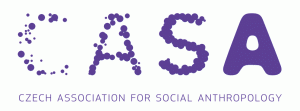3rd Joint Biennial SASA – CASA Conference, 2018 – Accepted Open Pannels


Joint Biennial Conference of the Slovak Association of Social Anthropology (SASA) and Czech Associations for Social Anthropology (CASA)
Vulnerability and Resilience:
Adaptive Strategies and Global Change
Accepted Open Panels
P1: Sensing the World, Adapting to Social Change
Convenor: Jaroslava Panáková
This panel is to explore how the senses act as perceptual forces in people’s adaptation to social change and how they can be influenced by the contextual factors peculiar to the community. Numerous contemporary communities (hunter-gatherers, agrarian and post-agrarian societies, urban hubs) have undergone through a number of radical changes in the ecological, social, economic, and political regimes. These contextual factors may have had impact on the ways of sensing. Anthropology of the senses reflects on the ways senses relate to cognition, meaning making, and linguistic coding within complex adaptive strategies. This panel aims to explore how the sensory modalities combine differently under particular circumstances and how the contextual factors of the environment affect the sensory processes. We seek to reflect upon the senses in the societies as explored through, but not limited to sensory environment (visionscapes, soundscapes, smellscapes etc.), folk expertise, and representations. What specific roles do the senses play in people’s encounter with social change? What external contextual factors in the environment influence sensory use? What cultural constrains, specific for the studies communities, have impact on the relationships between various perceptual sensory modalities? How can sensory research stimulate theories on social/cultural adaptation?
P2: Resilience models of social and cultural adaptation after socialism
Convenors: Juraj Buzalka, Juraj Podoba
The modern history of Eastern Europe has been full of dynamic and dramamtic events and processes permanently changing the basic conditions of life in different communities. Various strategies have been initiated, adopted, and resisted in order to cope with dramatic changes. Phenomenon of resilience has been incorporated into different models of adaptation. Strategies of adaptation could be understood as an individual and collective answer to abuse of power, ideological manipulations, political and social dominance, social inequality and exclusion, changing property relations, etc. But in the same time, resilience is the way how to survive in the conditions depending on changing nature of political régimes and of policies and ideologies implemented by them, and increasingly of changing global conditions as well. Anthropological analyses tend to favor victims´tales, perspectives of the marginalised and opressed. The present panel aims to discuss the „winners´cases“ or at least the cases of those who made their best from conditions available via their ability to adapt. Particular attention is paid to post-socialist resilience.
P3: Local experiences and the ethnographic testimonies of vulnerability and resilience
Convenors: Maria Vallström, Hubert Wierciński
Current ethnography is essentially the study of people and societies in motion and undergoing major reconstructions formed both by local and global factors. Thus, in the dynamic world of late modernity, the issues of sustainability and resilience require a special attention and ethnographic sensitivity, revealing local manifestations of globally distributed patterns of change, in its widest sense. We are interested in situating numerous materializations of vulnerability and resilience in local worlds. We pay attention to subjective and material contexts and observe through ethnographic lenses how vulnerability and resilience are understood and experienced in everyday life. We call for papers exploring people`s experiences, likewise contexts involving non-human agents like environment and eco-systems, shaping definitions and experiences of vulnerability and resilience. We aim to explore the multifaceted sense of the latter, involving aspects like gender, class and place. Our point of departure is to see resilience as a political project/battlefield on a rhetorical level, while in located practise revealing the domains of day-to-day reality, sociocultural values, and individual experiences of society and democracy.
We welcome the proposals expanding and building upon the following themes:
• The anthropological critique of sustainability discourses, developments and polices
• The dynamics of urbanization//ruralisation
• The tensions and ambiguities between centrum and periphery, urban and rural
• Global flows and interplay between knowledge, ideas and policies on sustainability and resilience
• The ethnographic insights on and testimonies of local materializations of sustainability and resilience in everyday life
• Global, local, individual and community based strategies applied to managing and practising sustainability and resilience
P4: Moralities and Vulnerabilities
Convenor: Ema Hrešanová
During past ten years anthropology of moralities and ethics has emerged as a new and exciting subfield of anthropology. Researchers have been increasingly interested in exploring moral reasonings, moralities and ethics in relation to diverse topics, settings and contexts, such as healthcare, economies and markets, state and state institutions, and especially the experience of human suffering and positions of vulnerability (see, e.g., Fassin 2012; Das 2015). Anthropologists with this research interest have developed and worked with a number of concepts that allow them to grasp a vast diversity of moral practices across different cultural and social contexts. Among these the concept of moral economy (e.g., Fassin 2009, 2012; Carrier 2018), moralities (e.g., Heinz 2009; Howell 1997), ethical pluralism (Cassaniti and Hickman 2014), local moral worlds (Kleinman 1999) and ordinary ethics (e.g., Das 2015) are the most prominent. This panel addresses these concepts in relation to vulnerabilities and suffering in Central and Eastern Europe and Eurasia. It aims to provoke discussions about these issues from the perspective of the anthropology of moralities and ethics or, alternatively, moral anthropology (Fassin 2012). We welcome papers that elaborate the above mentioned as well as related concepts and/or provide ethnographic examples allowing us to grasp various dimensions of the moralities of vulnerabilities more in depth.
P5: Monasteries as the places of resilience in the contemporary world
Convenors: Barbora Spalová, Isabelle Jonveaux, Peter Török
Monasteries are the institutions of the remarkable continuity which can be seen as a kind of resilience. Their existence stretches in many cases over more than thousand years. They are often seen as the places isolated from the society but the monastic seclusion does not abolish the relations of the monasteries to the society, just sets them differently. This panel invites the researchers of different disciplines to conceptualise, describe and contextually analyse the complex of exchanges of material and immaterial goods, norms, values and emotions between the monasteries and societies today and in different historical situations.
Particularly in East and Central Europe the position of monasteries has recently changed from illegal or marginalised status during the communist regimes to the position of local/regional/national spiritual, cultural and sometimes also economic and political centres. What this process of renovation/ transformation / reinterpretation of the monasteries allows us to say about the relationship between the societies and monasticism (or religion more broadly)? Does the memory of the vulnerability of monastic life plays a role in the contemporary lives of the communities? What the monasteries can and want to offer to the societies and what the societies expect from the monasteries?
P6: How to listen, learn and write: Ethical issues and vulnerability of writing ethnographic texts
Convenors: Ľubica Voľanská, Adam Wiesner
The panel plans to transfer the topic of vulnerability to the area of discussion on nature of ethnographic research itself. The relationship between the ethnographer and his or her research counterpart presents an essential question. We interview people to find out what happened to them, how they felt about it, how they recall it and what wider public memory they draw upon. We have been constantly facing very serious ethical and moral questions according to our role as listeners, as partners in the research, but also as persons with the ambition to use the interview in/for our scientific work. We are doing our work being aware of the vulnerability of our interviewees and their families. On the other side, Ruth Behar reminds us that „too write vulnerably is to open a Pandora’s Box“ (1996). Self-reflexivity brings to light the grey zones we encounter in our work. On this often difficult and fragile process, we perform a balancing act between what becomes necessary to work through ourselves and what select to present publicly. Focused on the topic of Holocaust (Salner – Vrzgulová), Multivocality in ethnographic research – case of Uaxactun in Guatemala (Podolinská), fragile old age (Voľanská) and reflexive writing (Wiesner) the semi-open panel will concentrate (but is not confined to) on following questions: How to write ethically with the awareness of one’s own boundaries – how to fill the ideal of „no harm“ being aware what data are essential for us as ethnographers? Solving the question of whether share the final text with our research partners even giving them the possibility to intervene, or not? If not, in what cases and why. What are the possibilities of participative and collaborative research as well as writing? I.e. how to maintain the different point of views in the text in relation to the textual representation itself?
Behar, R. 1996, The Vulnerable Observer: Anthropology That Breaks your Heart“ Boston: Beacon Press, p. 19.
Mizzi, R. 2010, Unravelling Researcher Subjectivity Through Multivocality in Autoethnography. Journal of Research Practice, Volume 6, Issue 1, Article M3.
PROPOSALS
Proposals in English should include the names of author(s), institutional affiliation, abstract (250 words max.), indicate the panel chosen and be submitted via Google Forms. Authors will be notified within 30 days of the submission deadline about acceptance/rejection of their proposals. The official language of the conference is English.
Faculty of Social and Economic Sciences, Comenius University, Bratislava
IMPORTANT DATES
March 31, 2018
deadline for panel proposals
May 13, 2018
deadline for paper proposals
June 30, 2018
deadline for early bird registration
SUBMISSION
Via Google Forms
ORGANIZERS ON BEHALF OF SASA & CASA
Luděk Brož
Juraj Buzalka
Martin Heřmanský
Michal Lehečka
Andrej Mentel
Juraj Podoba
Markéta Slavková
Daniel Sosna
Hana Synková
Zdeněk Uherek
Markéta Zandlová